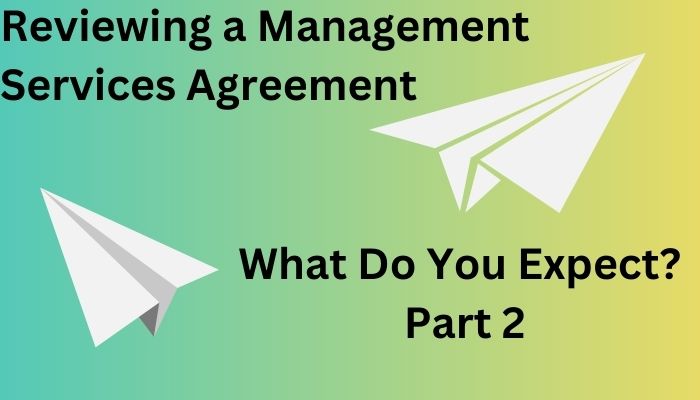
An aircraft management services agreement lands on your desk. Whether you are changing aircraft management companies or updating the documents with your current aircraft management services provider, what are some of the key terms you look for?
Additional Issues to Consider in your Aircraft Management Services Agreement
We addressed some of these issues in Part 1 of Reviewing a Management Services Agreement.
Some additional issues to consider include:
- Does the aircraft management services provider arrange for the hangar space?
- Who operates the tug in that hangar?
- Does the aircraft management services provider have the right to a lien on the aircraft for any late or unpaid invoices? Is this acceptable to your aircraft lender?
- Does your aircraft lender require collateral assignment of your agreement with the aircraft management services provider?
- What advance notice is required for tug operation and for pilot services?
- Does the agreement require the aircraft management services provider to promptly return the aircraft and the records when the agreement is terminated? What happens if there is a dispute over amounts owed?
- Have you discussed flight following and tail number blocking?
- How are any carbon offsets and emissions reporting handled? Are you willing to pay more to buy SAF (sustainable aviation fuel)?
- How is federal aviation excise tax (FET) handled?
Know your Important Points to Create the Best Aircraft Management Services Agreement for Your Needs
If you address these issues at the outset, after discussions with your aviation counsel, tax advisor and company personnel responsible for the aviation operations, your final agreement should better satisfy your needs.
Michelle M. Wade is an attorney with the law firm of Jetstream Aviation Law and counsels clients on the acquisition, financing and operation of corporate jets operated under Part 91 and Part 135 of the Federal Aviation Regulations. Jetstream Aviation Law can be found at www.JetstreamLaw.com.
The information provided here is not legal advice and does not purport to be a substitute for advice of counsel on any specific matter. For legal advice, you should consult with an attorney concerning your specific situation.
